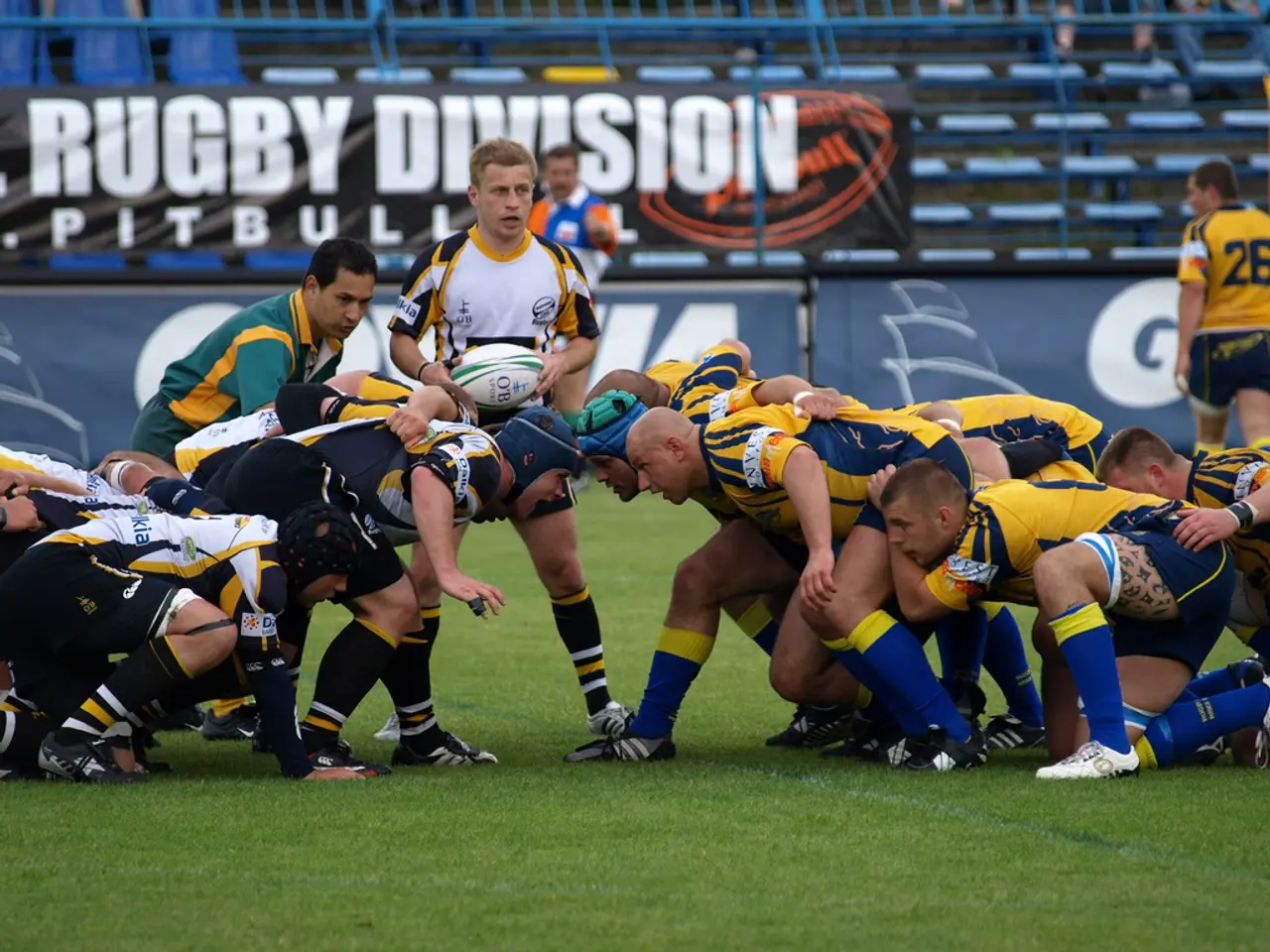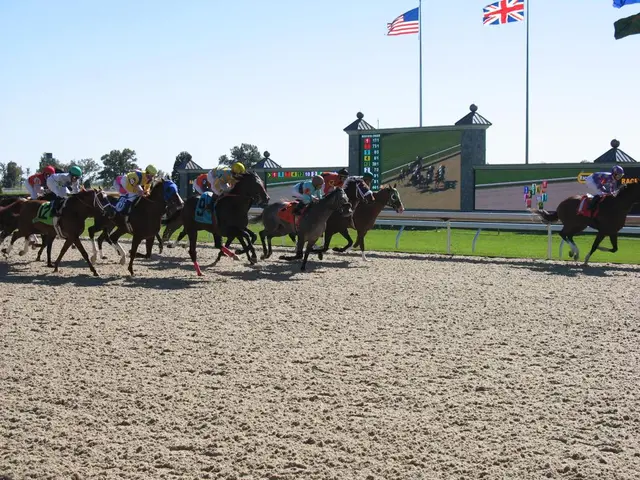Impact of Corporatization Reshaping the Authentic Traditions of Rugby League
In the world of Rugby League, commercialisation has emerged as a significant force, reshaping the landscape of this beloved sport. This transformation is not without its challenges, as the pursuit of profit and global recognition poses risks of diluting traditional values and community ties.
Community connections, historically strong in Rugby League, may weaken as corporations take a more prominent role. Rugby League, with its deep roots in local communities, has been built around amateur values, teamwork, and local pride. However, the introduction of professionalism, driven by increased sponsorship, has profoundly changed the game.
The economic impact of sponsorship is profound. Revenue from sponsorship enables teams to attract better players and improve facilities, enhancing the overall quality of the sport. Yet, changes in sponsorship often affect a club's identity and core values, leading some teams to opt for partnerships that may not align perfectly with their traditional ethos.
Grassroots initiatives play a crucial role in the development of Rugby League, providing a foundation for young players to participate in the sport and nurturing future stars. At a grassroots level, development is critical for the future of Rugby League. Engaging youth programs remains essential to maintaining a vibrant community connection.
The rise of professionalism in Rugby League has changed how fans interact with the sport. Some local connections may weaken as clubs seek sponsorships and partnerships, leading to potential disillusionment among dedicated fans. Yet, engagement with audiences has transformed dramatically due to digital platforms. Social media allows fans to interact directly with teams and athletes, fostering a sense of closeness and community.
Media coverage plays a critical role in shaping the landscape of Rugby League. Over the years, television and online platforms have increased visibility for the sport. The relationship between media and commercial interests is evident, as sponsorship deals have exploded in recent years, driven by media visibility.
Commercialisation has fostered a cultural movement in Rugby League, especially in the Pacific region, where the sport is revitalizing pride and identity among Pacific Island nations. For example, the rise of Tonga and Samoa in international competitions has reignited cultural connections and brought the sport closer to these communities, turning it into more than just a commercial enterprise but a way to "win hearts and minds" across the broader Pacific.
However, commercialisation can also challenge Rugby League’s traditional grassroots and community ethos. The expansion of leagues risks reducing competitiveness and diluting talent concentration, potentially weakening the spectator appeal and club sustainability. This creates financial and competitive strains, which can shift focus away from community development toward short-term commercial gains and franchise expansion, possibly eroding long-standing cultural loyalties.
Further, the heavy influence of commercial interests introduces new dynamics that could conflict with the sport’s cultural heritage. For example, in New Zealand Rugby (a closely related sport culturally), selling a stake to a private equity firm raised concerns about prioritizing shareholder returns over public or cultural commitments, potentially compromising brand heritage and the "special bond" with local communities.
The implications for Rugby League's future include positive growth and diversification, particularly in international and women's competitions, fostering inclusion and cultural pride for traditionally underrepresented groups. However, there is also the potential cultural dilution or loss of traditional community focus as economic pressures and league expansions might prioritize profit over local values and competitive integrity.
To stay true to its cultural roots, Rugby League requires careful balancing, with community engagement and grassroots development remaining priorities. Balancing commercial viability with cultural preservation ensures that the sport remains rooted in its historical communities while embracing global and financial growth. In summary, commercialisation is reshaping Rugby League's cultural landscape by both strengthening identity in emerging markets and challenging its traditional grassroots foundations. The future will depend on how well the sport manages this balance to maintain cultural authenticity alongside commercial success.
[1] "Pacific Islanders in the NRL: A Cultural and Economic Impact Analysis" - Dr. John Pratt, Griffith University [3] "The Impact of Commercialisation on Rugby League: A Case Study of the Super League Expansion" - Dr. Sarah O'Neill, University of Wollongong [5] "The Governance and Cultural Stewardship of Rugby League: A Case Study of New Zealand Rugby's Sale to a Private Equity Firm" - Dr. Richard Thompson, University of Auckland
Sponsorship and commercial partnerships, central to the transformation of Rugby League, may impact community connections established by the sport. Despite the digital platforms enabling fans to interact more intimately with teams and athletes, the potential weakening of local connections due to tailored sponsorships and partnerships could lead to disillusionment among dedicated fans.
Balancing commercial viability with cultural preservation is crucial for Rugby League to remain rooted in its historical communities while embracing global and financial growth. This delicate equilibrium ensures the sport's cultural authenticity alongside commercial success, as demonstrated by its increasing prominence in the Pacific region and the revitalization of cultural connections among Pacific Island nations.






